There is a lot one can say about the year 2020. There have been conspiracies, there has been truth and lies. However, what really matters is free thought and the ability to remain optimistic in a highly uncertain time. For Canadian-American Singer-Songwriter Jordan Edward Benjamin, artistically known as Grandson, this challenge is just as difficult as it is for the rest of us. A passionate artist, Grandson has been a modern day creative force, putting out protest music that is reflective of personal observations but also a mirror image of the very society we live in.
Attaining a storm of success thanks to songs like “Blood // Water,” which has appeared on multiple Billboard charts, Grandson’s name is becoming more well-known. So is it time for the next step?
Answering the call, as the flames continue to rise, Grandson strategically unleashes his debut album, Death of an Optimist, at the tail end of one of the most chaotic years on record. Cautiously optimistic about the future, Grandson’s leading force sat down for an in-depth conversation about influences, life, politics, and much more.
Cryptic Rock – You have been involved in music for quite some time, however, you have been working under the name Grandson for a few years. You have released various singles, EPs, and collaborated with other artists. Briefly tell us, what has it been like working under the creative title of Grandson?
Grandson – It’s been pretty overwhelming at times, but, ultimately, it is something I am extremely grateful for; I feel blessed to do what I do. I feel very lucky that I’ve found some sort of support while amplifying messages that I think are really important, and give me a great deal of fulfillment and purpose. There have been times where I’ve been confused about what drives me or motivates me to keep trying to move this thing forward and growing. However, it is when I remind myself of all the people that do find some sort of community together around these songs, plus all the work we’ve been able to do raising money as well as awareness for organizations doing important work. It is what I’m proud of and most excited to keep going.
Cryptic Rock – The best inspiration you can have is when you are doing something you believe in and when you are helping others. Judging by your lyrics, you are obviously someone who is a very deep thinker. At what point did you become aware of the hypocrisies and inequities of society?
Grandson – I think as I came into the age of reason, I, like many kids, began questioning the system around me. I was very lucky that I had my father, Robert Benjamin, who has always been very critical and sarcastic looking at the world, and that leads across both parties, to be honest, in America, plus back in Canada where I grew up.
I found myself gravitating to cultural figures who embodied that sort of healthy skepticism. One of my big heroes growing up was George Carlin. I gravitated toward people like George Carlin and Dave Chappelle who were taking a very light-hearted approach to telling a story, but not losing its message. I also gravitated toward Trey Parker and Matt Stone, the creators of South Park, Mitch Hedberg, and Eminem. It was those sort of artists I kind of flocked to.
Once I went to university, I found myself going through a bit of an identity crisis. I felt like I was doing everything right, but feeling very unfilled and felt kind of confused as to what my life was going to look like. It felt like other people’s lives were settling into their version. I grew up in a neighborhood where a lot of kids had a predestined path; where they often met the girl down the street and stayed in the neighborhood their whole lives. For me, I think I was always looking to do something different than that, and music just happened to become the way I expressed that.
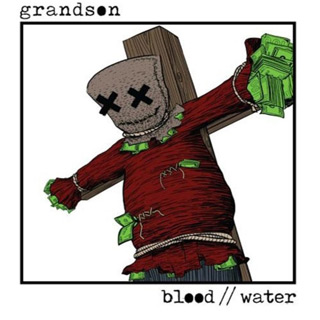
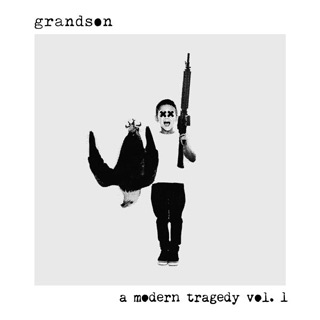
Cryptic Rock – It makes a lot of sense. You can certainly hear those influences in your message. Your music is very eclectic: you mix in Electronic, Hip Hop, Rock, etc. What inspired your musical direction?
Grandson – To be honest, I was always listening to lots of different kinds of music. Being born in 1993, I’m part of a very interesting generation – different even than my sisters who are only a couple of years older than me. I was part of that first generation that didn’t really grow up on CDs or vinyl; I grew up downloading music illegally on LimeWire and Kazaa. It was just the post Napster area and pre-iTunes. It was just a bit of the Wild West where all the song titles were a paragraph long with a bunch of numbers and underscores; you would sometimes try to download a Linkin Park song and end up with a virus or a bunch of porn on your computer. (Laughs)
I always get questions asking, “What were my most influential albums?” A lot of my time I bullshit my way through those answers. When I was a kid I was listening to a song from here and a song from there. I was also part of a brand new generation that were the guinea pigs for social media. Me and my friends got Facebook when we were in grade eight. I think I just grew up in a digital world and I was able to draw influences from a lot of nooks and crannies from the internet.
I found myself as an artist writing songs in different buckets. I just wanted to rip off the artists I liked and emulate them. I started playing a bit of acoustic guitar and tried to make songs that sounded like Ben Harper or Bill Withers. Then I also started smoking weed around the age of 13 and was writing a lot of Hip Hop; so I would be writing and freestyling at the party or on the back of the bus trying to be Big L, Eminem, or trying to be a punchline driving A Tribe Called Quest kind of rapper. Then when I went to university, around 17, you saw artists like Skrillex, Baauer, and these DJs/Electronic producers cut through into the mainstream. Major Lazer was also influential at that time in my life.
I had these three very clearly different influences and I was making very poor, cheap imitations of them separately. None of them were really going anywhere, and I felt very frustrated. I had nothing to lose, so when I decided to start this artist project and call it Grandson, it became an experiment. I thought, instead of me trying to decide to be a rapper, singer, or DJ, why don’t I make Hip Hop driving Rock with Electronic influence? It started doing pretty well pretty quickly, so we just leaned into it.
Cryptic Rock – It works and Grandson is certainly a unique entity. You mentioned how you grew up on songs, not albums. That said, you have released a bunch of singles as well as EPs. Now you are releasing your debut solo album on Friday, December 4th, Death of an Optimist. Did you want to put out music piece by piece before an album?
Grandson – I think that was one part creative liberty of still wanting to experiment and explore. It was two parts my team around me, and trying to think critically about how to maximize people’s very finite attention span and grow. I like to think building your identity as an artist is like starting a fire: you need a lot of kindling, you need the twigs; you can’t just put a big log on and just put this album on. You can’t just put a match on and walk away – that is not how it works.
I think the first couple of years we were putting out music every month and a half, or two months, to remain in people’s peripheral vision as much as we could. I think now we’ve obviously grown a bit, thanks to the success of “Blood // Water” among some other stuff. I think the time just felt right as far as having a fanbase that’s actually hungry for a bigger body of work. It wasn’t purely a business decision, though. On the creative side I found myself finally having a broader context of what I’m writing about; I found myself introducing these different characters and these crossroads of holding onto hope in such a fucked up, confusing year. That lent itself to a longer form batch of songs then just singles or an EP.
In some ways, I was devastated when all the tours shut down and when all this uncertainty and confusion swept across the world. My heart goes out to anybody who has lost their jobs or loved ones. In large part it is because of the chaotic disarray of having an administration here in America who took so long to get their shit together. To this day they still do not have any real consensus on enforcing social distancing or masks. I think this clusterfuck of trying to leave it up to the states to figure it out for themselves has created a lot of needless confusion and loss.
I was as frustrated as anybody when I watched this all play out, but at the same time, although I can’t tour, and although I feel very far from the people I’ve grown this project with, it also feels like an important, right time to put out music. One day we’ll look back on this time and ask ourselves, “What did we stand for? What did we do with that year inside?” I’m happy to be putting out this album and being able to point and say, “This is what we made of it.”
Cryptic Rock – It is an extremely important time to put out music. People need hope, they need a release, and this album provides that. What was it like writing and recording the album?
Grandson – I think I spent a month or two gathering my ideas and thoughts trying to figure out what it was about. There was a thread that connected all these different feelings that I was navigating and social issues I wanted to speak on; it was how you remain hopeful and optimistic for the future. Once I had that, the songs themselves started to fall into place pretty quickly. We wrote the majority of the album in the span of about one to two months at the beginning of the year.
When the pandemic hit, it was an opportunity to flesh out the artistic vision visually by introducing the X character to personify my anxieties about the world, as well as my pessimism and cynicism. I was able to have a much more hands-on creative role in these other aspects of the album. That is something I wouldn’t have otherwise had the bandwidth for if I was on tour trying to do that with an hour off in between soundcheck and getting on stage. Once the pandemic hit, it fleshed out different parts of the album-making process, but I actually wrote most of the music in December through February.
Cryptic Rock – Very interesting to hear how it was born. You mentioned anxiety, and we are living through a very anxious time. It honestly has been an anxious time for a while, but it appears to be coming to a head. Do you find having the ability to create this music releases that anxiety for you?
Grandson – Absolutely. Whether or not it releases it, there is something very powerful about having a forum and space where you sit there with your microphone and you have a cathartic outlet. I lose my voice, jump up and down… half these sessions I leave sweating and with tears in my eyes. That is so important, and I think as we grow up there are less and less spaces for us. That is why I think live music is so important and why so many people are missing it so much. It’s so rare to find that place where you can access that inner child and really be as mad or frustrated as you can be. Usually we have this veil of keeping up appearances, and I don’t think it’s necessarily healthy.
In some ways it has been a good outlet for me, but I don’t know if it has dissipated those anxieties. It doesn’t make it go away, but I don’t think the point of this album is necessarily presenting you with a conclusion and telling you there is nothing to fear. It is rather telling you that you shouldn’t let that fear paralyze you. You should go forward with your life and do the right things; regardless of what may loom hiding behind tomorrow, because it’s the right thing to do. I think that’s the message that I really want to communicate through this album.
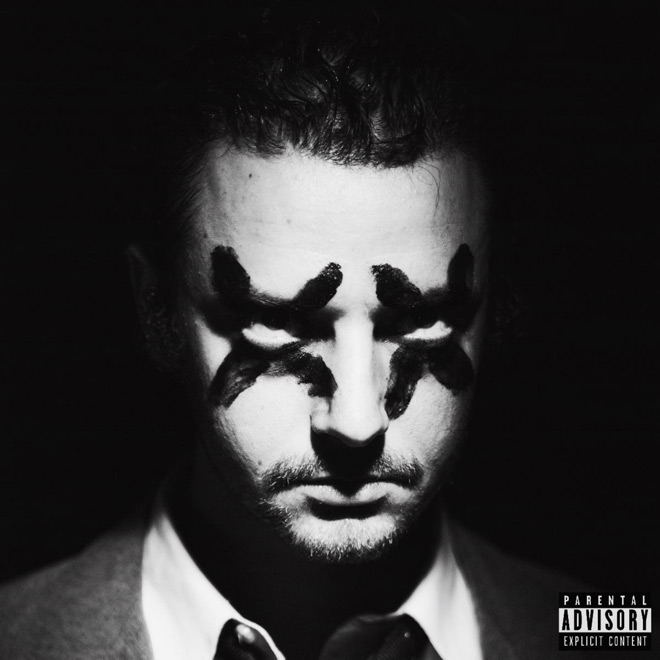
Cryptic Rock – Very well put. It does not seem like you are trying to find a solution – you are giving an observational point of view. You are saying, “This is what I see… now make your decision.” Is that an accurate assessment?
Grandson – Yeah! Thank you for hearing that! A lot of the songs seem like I’m in over my head, or caught in this riptide and overwhelming indecision between two places. Most of this album is written at those very crossroads.
A couple of songs might push you one way or another – I think songs like “Dirty” or “Drop Dead” are much more from the perspective of channeling your inner-Grandson and going to fight the world. Then you have songs like “We Did It!!!” and “WW3” that are darker and might suggest, what was the point of any of this?
I think the broad majority of the album is in that indecisive place that speaks to my own mental health. Some days I wake up and it all makes sense, some days I wake up and struggle to find a reason to get out of bed. Most days I’m just going through the motions and trying to do the best I can, I think.
Cryptic Rock – That realism and passion is something that shines through in the music. It is something we can all relate to.
Grandson – I appreciate the way you reflect back on my answer. It makes me feel like you are actually listening. You would be surprised how few interviews you feel like that.
Cryptic Rock – Absolutely. This is about being human. We need to listen to one another. Do you feel like we have become dehumanized at all?
Grandson – No, I wouldn’t say we have necessarily become dehumanized, I just think we have been manipulated in such a way that appeals to very human emotions. I think there is a lack of empathy in some ways, I think we sort of fail to understand one another.
I do think when I do look at the most fanatical examples of radicalism here in America, I think the underpinning of it is often the fear for the safety of one’s family and fear for the future. I think those are very human emotions. I do not think we have dehumanized ourselves, I just think we are failing at the most broad level as far as educating people and having a responsibility to navigate the potential ramifications of using fear to sell shit. I think somewhere along the way it became that the Republican party would get more votes and Tucker Carlson would get more viewers if you keep people afraid and angry. That comes at a great cost and it increasingly becomes obvious it is something that these people with huge platforms do not care about.
I wouldn’t just pin it on the Republican party though. With the wave of neo-liberalism there was a lot of deregulation with Democrats as president; major Wall Street bailouts and things like that led to a widespread disillusion and frustration at the status quo. I think we all share that blame in some way. I wouldn’t suggest that people have lost their humanity. I think the only people who have lost their humanity are those who are so blindly in pursuit of power, money, and fail to acknowledge their responsibility to dial it back a bit and remind us that we are all into this together.

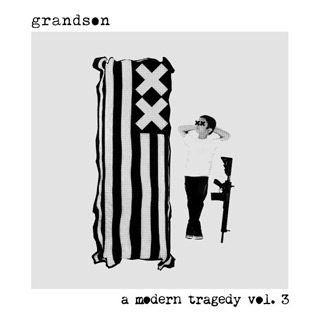
Cryptic Rock – Very well articulated. It is about us remembering no one person is to blame; we all have responsibility.
Grandson – Yes, exactly. I see a lot of more seasoned anarchists, who are Rage Against the Machine fans, that accuse me of being too far left and not being skeptical enough of both sides of the aisle. That is fair, but we are just in a time where there is an entire wing of the country that fails to acknowledge the reality of climate change, that wants to push back women’s rights and opportunities to participate in democracy.
In some ways, while making these angry protest songs, I try to be realistic and pragmatic as far as what is actually going to help make the kind of change I’m talking about. I do try to be critical across the aisle, but I am trying to be honest that we have huge problems we need to tackle. It’s confusing and frankly not super fun. It isn’t fun when you had this unprecedented voter drive this year. Nobody wants to spend three hours sitting there cross-referencing all these different candidates and propositions trying to understand what choices are best. This is what it looks like, though. This is the degree that we need to give a shit in order to have a society that reflects us, because look at what happens when we are apathetic, ambivalent, and pretend these things don’t matter because they are just boring.
I try to lead by example and hopefully make a soundtrack that makes this stuff feel a little more exciting and badass. We are taking the power back: it just doesn’t always look like Molotov cocktails and flipped over cop cars. Sometimes it looks like the ballot box and tries to be a little critical before blindly sharing some article written by the Kremlin and pretending to be from someone in Kentucky.
Cryptic Rock – It is always good to be an active thinker and challenge yourself as well as others! Last question. What are some of your favorite films?
Grandson – That is tough. I’m a big fan of Quentin Tarantino movies. I am also a big fan of Paul Thomas Anderson, Wes Anderson films, and Christopher Nolan to a degree. I like films where the bad guy and the good are a little unclear.

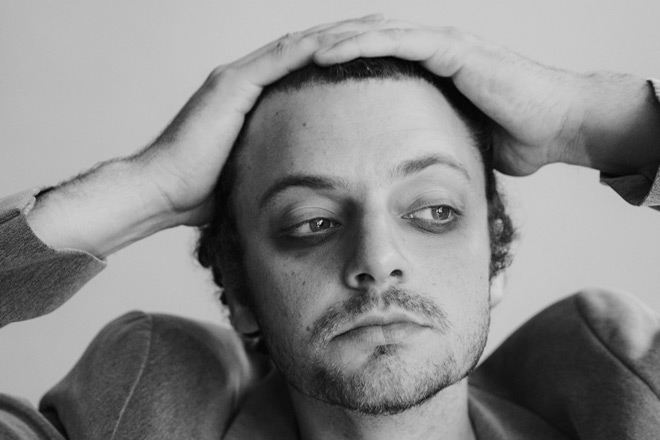
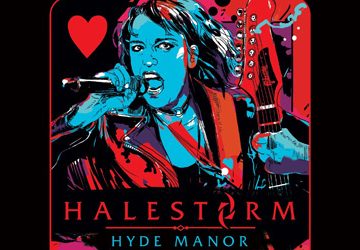
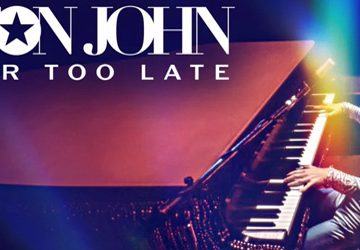


[…] Interview – Grandson […]